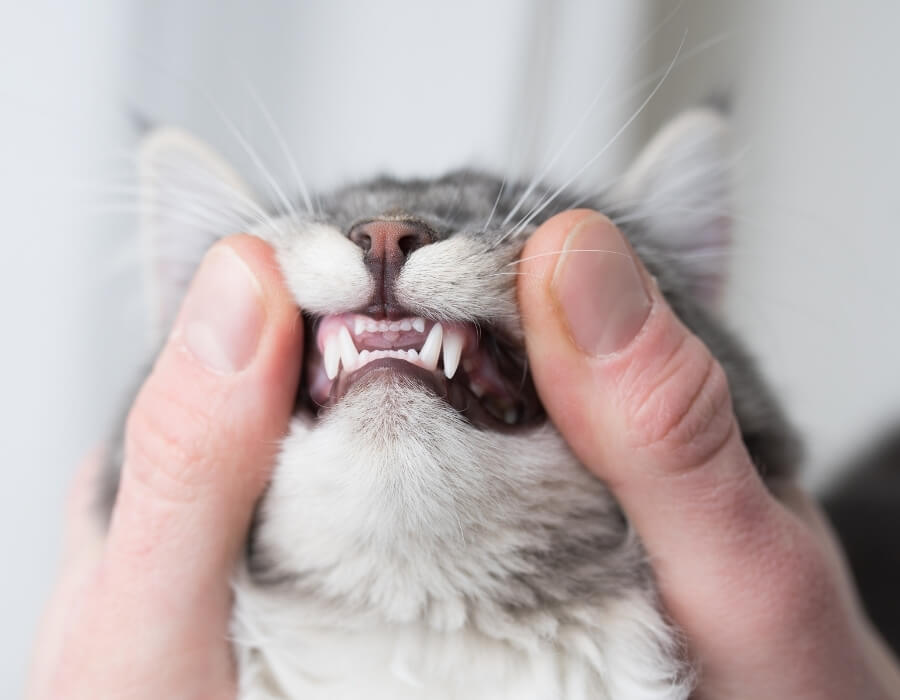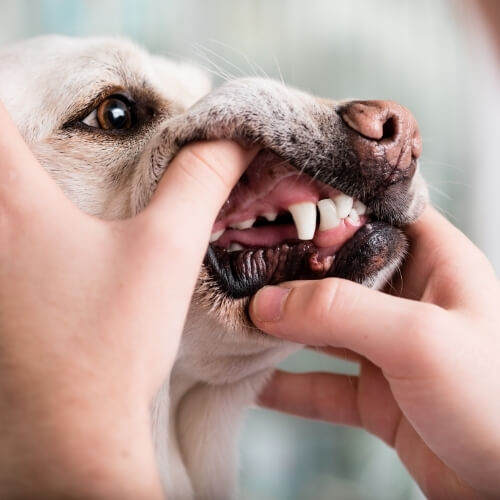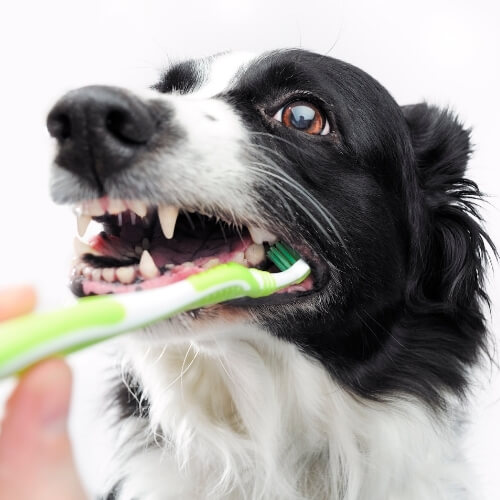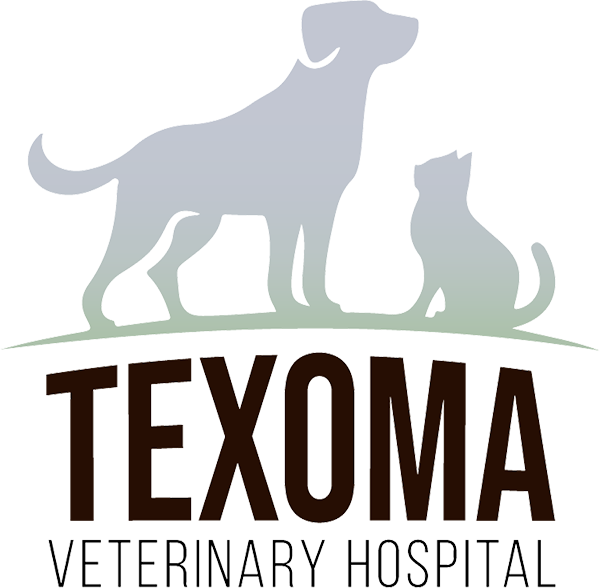Pet Dental Care
Even with bad breath and yellowed teeth, your pet still seems to eat, drink, and play as normal. Is it really necessary for them to have their teeth cleaned? Due to the high volume of patients that visit Texoma Veterinary Hospital with oral issues, we can safely say “yes.” Call 903-300-1547 to schedule an appointment or make an appointment online. A cat or dog teeth cleaning is necessary for your companion to live a long and healthy life, and our team is highly knowledgeable in the latest veterinary dental practices.

Pet Dental Care

SIGNS OF PET DENTAL DISEASE
Despite increased awareness of dental disease, the condition itself is more prevalent than ever among dogs and cats. A continuous lack of dental care is all it takes for dental disease to develop. The primary indicators of this disease are:
- Red, swollen, receding gums
- Brown/yellow teeth
- Loose teeth
- Bad breath
- Difficulty chewing/eating
- Decreased appetite
- Heavy drooling
- Swelling under the eyes
- Less interest in chew toys
- Sleeping more often

HOW TO PREVENT DENTAL DISEASE AND OTHER ORAL HEALTH PROBLEMS IN SHERMAN
Gingivitis, cavities, and dental disease can be prevented if your pet receives proper dental care on a routine basis. Starting them young is especially important, as they will quickly get used to having their mouths handled and will be more receptive to brushing.
If we examine your pet and see that they are showing signs of dental disease, we will need to take further action, which may include:
- Bloodwork to make sure that your pet is healthy so we can safely sedate them for their dental procedure
- Digital, full-mouth X-rays to examine your pet’s teeth and look for signs of damage below the gum line
- A complete cleaning performed with your pet under anesthesia that includes scaling the teeth to remove plaque and tartar, polishing the enamel surfaces smooth, and performing any extractions as needed to remove broken and/or infected teeth
WHAT IF MY PET DOESN’T TOLERATE BRUSHING?
It isn’t always possible for some owners to brush their pet’s teeth. To compensate for lack of brushing, we recommend a tartar-control diet to minimize plaque and tartar buildup, dental chews and treats, and using a finger brush or wipe to remove excess buildup from your pet’s teeth. Additionally, they might need to see us for dental cleanings at least once a year to keep dental disease at bay.
If your pet has bad breath or is showing other signs of a dental problem, don’t wait—let us know by calling 903-300-1547 today!
Severe dental disease can result in heart, liver, and kidney disease in your pet, which is why dental disease prevention is so important. Contact us today so we can help!
Veterinary Services We Provide
Texoma Veterinary Hospital is proud to provide a wide range of services for your pets. We offer pet wellness care, vaccinations, dental care, surgery, spay & neuter, diagnostics, dermatology, laser therapy, reproduction/breeding services, and emergency care.
